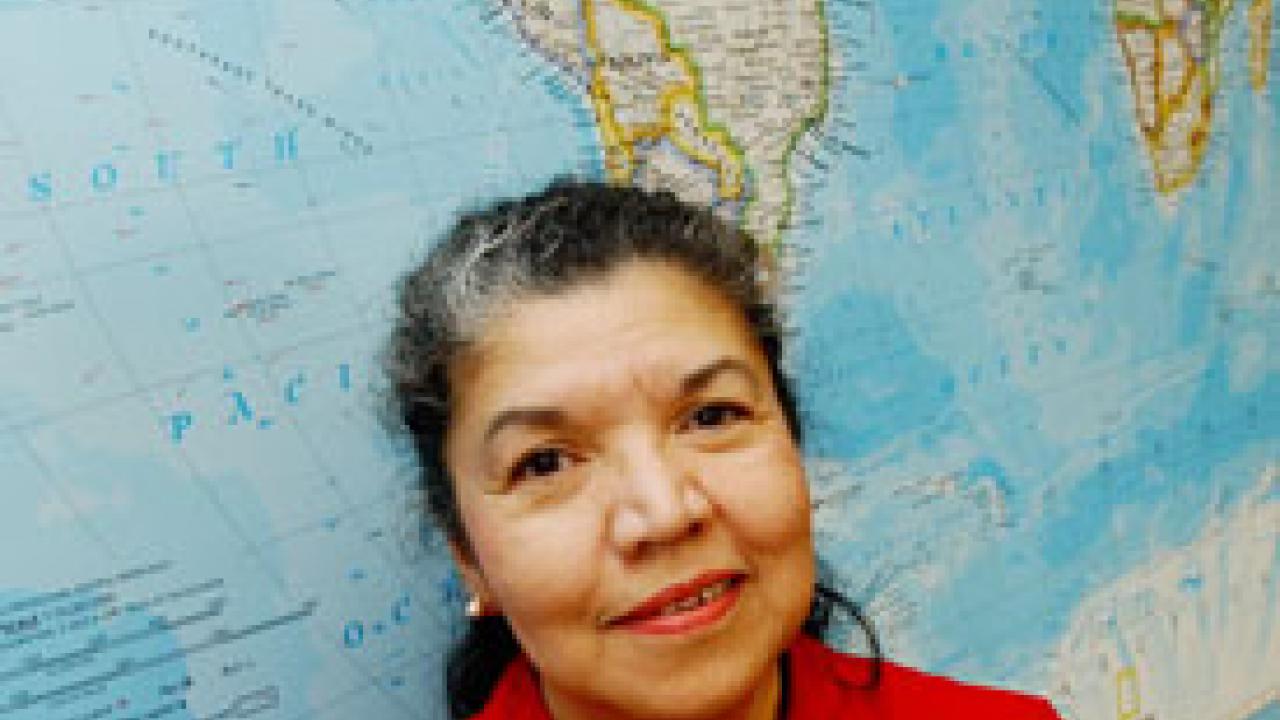Whether she's cultivating California poppies in her backyard, tending to the next generation of scholars or helping to nurture international relations, planting the seeds of growth is a theme in the life of 35-year UC Davis employee Delfina Redfield.
One of her greatest pleasures, she says, is helping people feel at home. Perhaps the sentiment is born from her experiences of spending her adult years so far from her native country of Panama.
An Army bride, Redfield was working in undergraduate admissions at UC Berkeley in 1972 when her husband, Robert, was finishing his master's degree in Spanish. Seeking the right place for Robert to pursue his doctorate, the Redfields' choices came down to UCLA or Davis. "We chose here and have never regretted it," Delfina says. "The city still has that nice, safe feeling."
Soon after arriving in Davis, she took a job with the UC Davis Department of English.
"I started out like so many women, helping my husband through graduate school," she says. But a little bit of time in the workforce had its impact. "It's amazing how you grow fond of the people you work with," Redfield says. "I didn't want to leave."
After earning his doctorate in Medieval and Spanish literature, Robert ultimately found his own calling as proprietor of a Davis auto repair business - Redfield Machine.
Fast-forward some 30 years to life at the Hemispheric Institute ...
After 23 years in the English department and another seven in Chicana/o studies, in June of 2002 Redfield began working as program coordinator for the Hemispheric Institute on the Americas, housed the fifth floor of the Social Sciences and Humanities building.
Redfield helps bring to campus noted speakers from throughout the western hemisphere to exchange ideas and question established cultural, economic and social beliefs. Latin American experts in anthropology, political science, agricultural and resource economics, environmental science and policy, nutrition and other fields take part in the interdisciplinary talks.
The institute focuses on themes including the hemispheric flows of people, capital, consumer goods, images and ideas. And since the program seeks to move discussion beyond "official," nationalistic or politically-motivated discourse, making speakers feel at home is imperative.
Making first contact with a prospective speaker is particularly exciting, Redfield says, because it's often done completely in her native tongue, Spanish. By avoiding language barriers, she hopes to help provide foreign visitors with a higher level of comfort both before and after they arrive. "I like to think that when people come here, they feel welcome and they feel at home."
Redfield also spends time working as a UC representative in the Conference on Latin American History program, maintaining member databases and traveling to conferences as necessary. And throughout her career, Redfield has worked closely with students, another particularly satisfying aspect of her work, she says.
"You get to see their successes. You see them kind of scared when they first arrive. And then you run into them what seems like the next day and they're already graduating. The little girls have turned into beautiful, young women."
Away from work, Redfield can often be found adding warmth to her own home by surrounding it with flowers. "I love poppies and anything purple or red, to attract the hummingbirds," she says. "Flowers bring a lot of happiness."
Seemingly in keeping with aspects of her life even beyond gardening, she adds, "If there's a little spot of dirt, I'll put in a seed."
